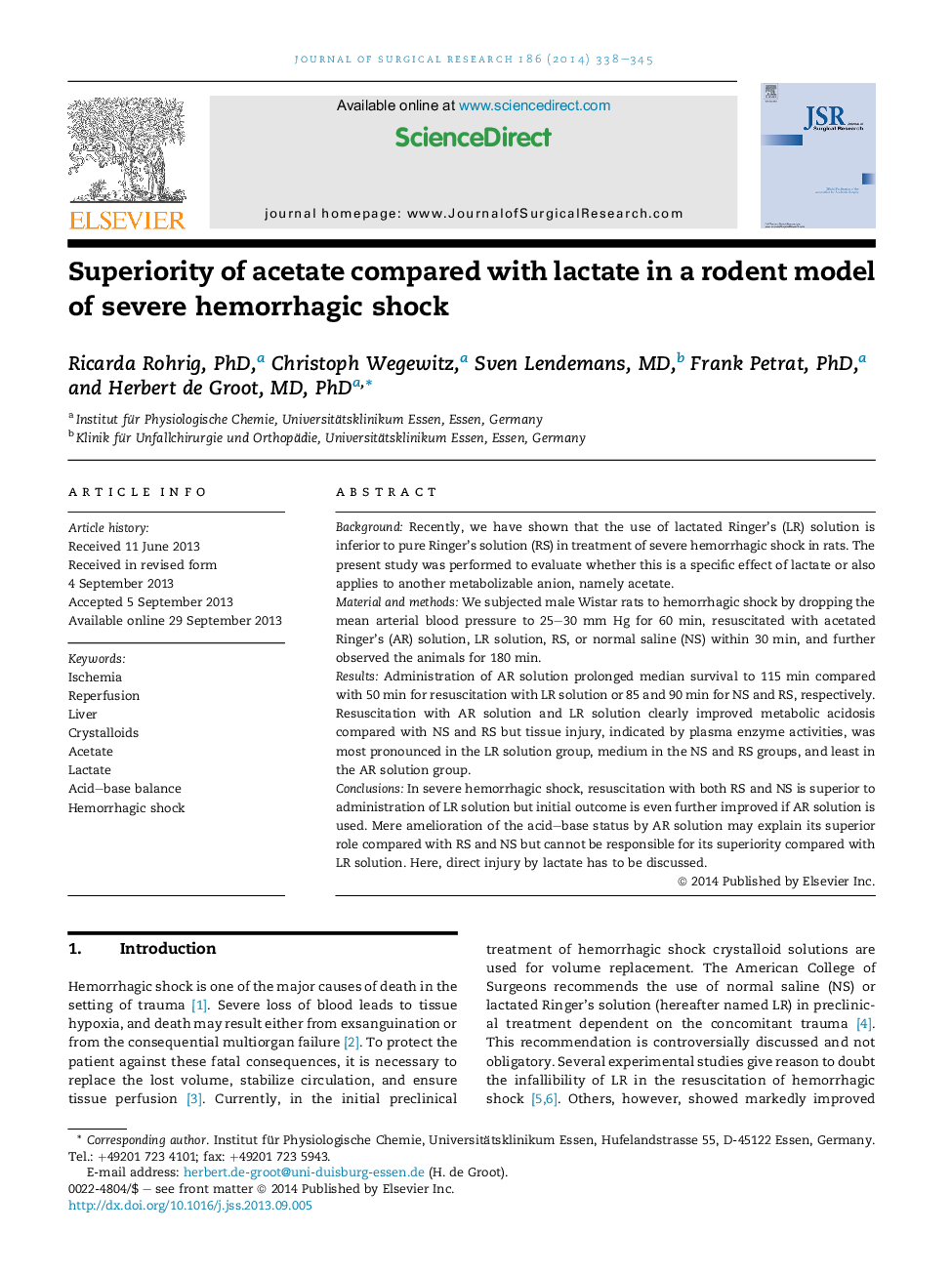| Article ID | Journal | Published Year | Pages | File Type |
|---|---|---|---|---|
| 6254208 | Journal of Surgical Research | 2014 | 8 Pages |
BackgroundRecently, we have shown that the use of lactated Ringer's (LR) solution is inferior to pure Ringer's solution (RS) in treatment of severe hemorrhagic shock in rats. The present study was performed to evaluate whether this is a specific effect of lactate or also applies to another metabolizable anion, namely acetate.Material and methodsWe subjected male Wistar rats to hemorrhagic shock by dropping the mean arterial blood pressure to 25-30 mm Hg for 60 min, resuscitated with acetated Ringer's (AR) solution, LR solution, RS, or normal saline (NS) within 30 min, and further observed the animals for 180 min.ResultsAdministration of AR solution prolonged median survival to 115 min compared with 50 min for resuscitation with LR solution or 85 and 90 min for NS and RS, respectively. Resuscitation with AR solution and LR solution clearly improved metabolic acidosis compared with NS and RS but tissue injury, indicated by plasma enzyme activities, was most pronounced in the LR solution group, medium in the NS and RS groups, and least in the AR solution group.ConclusionsIn severe hemorrhagic shock, resuscitation with both RS and NS is superior to administration of LR solution but initial outcome is even further improved if AR solution is used. Mere amelioration of the acid-base status by AR solution may explain its superior role compared with RS and NS but cannot be responsible for its superiority compared with LR solution. Here, direct injury by lactate has to be discussed.
